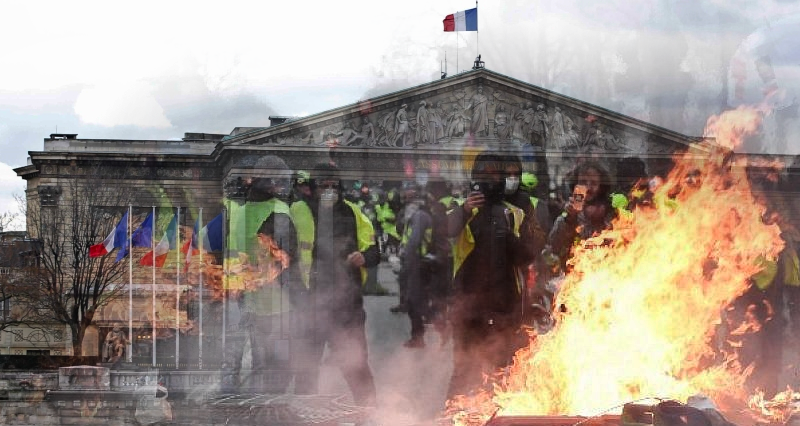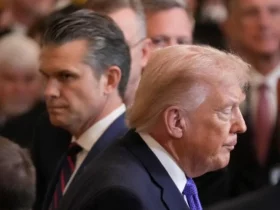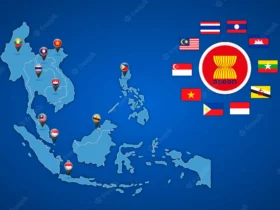By Odile Mojon-Cheminade *
Despite a protest vote that has grown significantly during his mandate, Emmanuel Macron has been re-elected. A re-election that seemed, against all odds, very likely.
For as brilliant as the strategy that allowed him this stunt was – letting the media do the campaigning for him while his opponents were sabotaging themselves – his re-election leaves a very bitter taste for a majority of the population who hoped to see the end of what, for them, has been a long nightmare, as opposed to the most privileged French people who have largely benefited from the policies carried out during his Presidency. Under his five-year term, and despite the Covid pandemic, they have benefited from an increase in their purchasing power, not to mention the record profits of France’s big money.

However, the record of the Macron quinquennium is not reduced, by far, to purchasing power alone. For the majority of citizens, Emmanuel Macron is synonymous with the breakup of the French social model and the public services that ensure its functioning – the pet peeve of ultra-liberal interests -, the unraveling of French institutions and the weakening of democratic debate. Above all, Emmanuel Macron has shown himself to be a man of division and the exacerbation of existing fractures in a technocratic and increasingly solitary vision of power based on the use of violence.
First the physical violence towards the yellow vests, with the repression intended to terrify and break a popular mass movement, then the social violence with the emblematic case of the hospital staff treated with a stupefying cynicism at a time when, in the front line of the fight against the pandemic of Covid and claiming means to cope with it, the power continued to plan the methodical destruction of the public hospital to offer it on a silver platter to private interests. If we add to the long list of scandals and conflicts of interest (the Alstom affair, the Pfizer/Nestlé affair, the McKinsey affair, to name but a few) the incredible contempt shown for the values to which the French are attached, we can either be indignant or wonder about the mechanisms that make it possible to keep such a widely contested person in power.
For Macron’s victory, experienced as a shock that has plunged the French even deeper into their pessimism, was foreseen a long time ago. It is therefore necessary to look back at some key aspects of this campaign.
A well-framed presidential election
First of all, a first phase dominated by the surge of Eric Zemmour. As a columnist and editorialist in various popular medias, he was initially carried by a media coverage ensuring him a huge popularity. However, what appeared to be a force that could sweep everything fell like a soufflé when the official campaign began.
But, in the meantime, Zemmour had already set the tone and determined what would be discussed and what would not. By giving undue importance to the issue of immigration, not only were the substantive issues – those that decide the future of France – obscured, but once officially declared, the other candidates proved incapable of breaking this deadlock. The appalling mediocrity of these candidates, even though the population had high expectations for an alternative, certainly weighed heavily in Macron’s re-election, but we must add to this the control of the media over the “narrative” of the election.
Over the course of the last few elections, a conjunction between polling institutes, the media, consulting firms and other “spin doctors” has been put in place, largely borrowing from the American model, and making it possible to highlight or, on the contrary, to render invisible this or that candidate. In France, the case of Jacques Cheminade, who represented a real alternative, is particularly interesting among a few other candidates who, without claiming victory, were asking the real questions.
Although there are obviously no official statistics that allow us to state this with certainty, it is clear that a large majority of French people did not want Emmanuel Macron to be re-elected. So he just did, with great skill, the only thing that would allow him to win: do nothing.
While the other ten presidential candidates were arguing or exposing their vacuity on television or radio, the undeclared candidate Macron was campaigning in the shadow of his presidential office. Having no interest in confronting the other candidates, he would make his candidacy official only very late, on March 3, 2022, through a letter sent to the television channel BFMTV (owned by the billionaire Patrick Drahy) before, logically, refusing any debate with his competitors.
The only debate was the one of the second round, against Marine Le Pen, an opponent who was astonishing in her inability to take advantage of Emmanuel Macron’s calamitous record and to ask the few questions that would have neutralized his aggressiveness and arrogance, and that would have allowed her to turn the debate in her favor. Her poor performance, added to the media surge replaying the tragi-comedy of the “Republican bloc” (i.e. the alliance of everyone against the specter of extreme right) for the umpteenth time, did the rest and offered a very comfortable victory to Macron, with a score admittedly lower than in 2017, but unequivocal.
Winning, yes, but at what cost?
Some have spoken of a Pyrrhic victory, not without reason. The results of the first round show that the winner is abstention: 26.3% of registered voters abstained (not including 1,63% of blank and invalid votes cast) against 20.1% of them (namely 27.95% of votes cast) who voted for Emmanuel Macron. In number of votes, it is 12,824,169 votes against 9,783,058, a gap of slightly more than 3 million votes. In the second round, the abstention was even greater, with 28.01% of registered voters (not including 6,23% of blank and invalid votes cast) and if the officials results are showing Macron winning with a comfortable 58,55% of the votes cast, one has to take into account that it represents only 38,5% of the registered voters, a result indeed far from a deep assent. For the vast majority of those who went to vote, the question was not of voting for so or so but against the one of the two candidates who was judged to present an existential danger for France. In short, fear won, and France is now headed by a president re-elected for a second term, who arguably does not represent the deepest aspirations of French society, except for those of a small minority.
Thus, forty years of systematic use of the “Le Pen scarecrow” by an incestuous left/right caste whose only conviction is to preserve its positions have ensured the re-election of a man who is not only hated by a significant portion of the French population, but who has pursued a policy that is detrimental to its fundamental interests.
It is in this context that the legislative elections of June 12 and 19 have emerged as an issue of crucial importance. Indeed, will Emmanuel Macron have a majority that will allow him to govern or not? A subsidiary question: will the French, taken hostage during the presidential election, allow themselves to vote according to their heart?
Jean-Luc Mélenchon, who came third with almost 22 per cent of the votes cast in the first round, has seized on the idea of making the legislative elections the “third round” of the presidential elections, calling for the rallying of all the forces of the left so as to ensure such a massive vote in his favour that it would force Emmanuel Macron to appoint him prime Minister. This could indeed respond to the deep desire for change of the majority of French people, 66 per cent of whom agree to a cohabitation.
This prospect is as unifying as it is uncertain. For it to become a reality, the political platform founded by Jean-Luc Mélenchon, the “NUPES” (Nouvelle union populaire écologique et sociale), would have to obtain a majority of at least 289 of the 577 seats in the National Assembly. Moreover, the NUPES, which was formed at the cost of many difficulties and despite major programmatic differences with various parties, including the ecologists, the communists, the socialists and extreme left, appears to be fragile.
Above all, the electorate of Jean-Luc Mélenchon, and more broadly of the NUPES, is concentrated in the cities and suburbs, with little representation in rural areas. For Marine Le Pen’s party, the reverse is true, with an electorate rather represented in rural areas, small or middle sized cities or former working-class basins like the North of France. Only Emmanuel Macron benefits from an electorate that is more evenly distributed throughout the country, which may prove to be a decisive factor when it comes to electing a deputy for each of the 577 legislative districts.
For the first time since the change in the presidential term of office from seven to five years, in 2000, which caused a reversal of the electoral calendar, the legislative elections may not function as a simple confirmation of the presidential election. Given the particular context of the latter, they are indeed more undecided but also more open and the turnout (which had been very low in 2017) will tell us whether they will have had, or not, value of “third round”.
Badly elected, Emmanuel Macron could nevertheless pull out all the stops and succeed in gaining a majority in parliament. He would then have a free hand for a new set of reforms, in particular the very unpopular pension reform that he had been unable to carry out because of the Covid pandemic. In this perspective, each of the candidates of his “Ensemble! Pour une majorité présidentielle” (Together! For a presidential majority) had to sign a 12-point charter, including a clause stipulating the obligation to support “all the commitments made by the president” in case of victory.
Some have presented this term as unfair. If it seems, at the very least, the admission that Emmanuel Macron fears not being able to count on each of his deputies to pass reforms that will inevitably provoke the anger of the population, it obviously intends to counter possible defections such as those that had cut his parliamentary majority during the previous mandate.
One thing is certain, Emmanuel Macron will not benefit from any state of grace. The difficulty of forming a government, which has only just been announced almost a month after its election on 24th April last, is not the best omen.
* Candidate for the French legislative elections for Solidarité et Progrès Party

















Leave a Reply